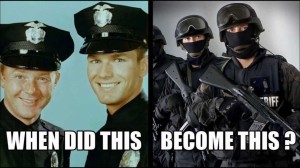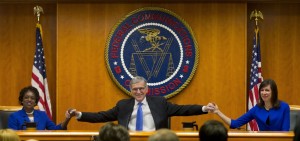 In a move that took many Internet experts by surprise, the FCC has declared that free pornography on the Internet violates federal law prohibiting obscene programming. In a statement today from FCC Chairman Tom Wheeler, he states that once the FCC took regulatory authority over the Internet as a Title II public utility, it was incumbent on the agency to standardize how it applies existing laws over all forms of transmission in order to protect the children and to avoid potential conflicts of interest.
In a move that took many Internet experts by surprise, the FCC has declared that free pornography on the Internet violates federal law prohibiting obscene programming. In a statement today from FCC Chairman Tom Wheeler, he states that once the FCC took regulatory authority over the Internet as a Title II public utility, it was incumbent on the agency to standardize how it applies existing laws over all forms of transmission in order to protect the children and to avoid potential conflicts of interest.
“Now that the Internet is classified as a public utility, the same as public airwaves, we knew that we had to move to ensure that the same standards of decency we apply to public radio and television were also applied to the public Internet. The Internet is so ubiquitous that with today’s technology, it is trivial for children to view free pornography on their computers or mobile devices. It is not a stretch to say that the Internet reaches more youth today than radio or television ever has. To not prevent our children from obscene content would simply be irresponsible on our part. Additionally it could open the door for relaxing standards on the public airwaves. If we do not apply the same rules to content on the Internet, it is entirely possible that we would be forced to change the way we regulate the public airwaves and that would be completely unacceptable.”
The FCC chairman went on to say that they are not violating free speech because obscene material is not protected by the First Amendment. In addition, because people can pay for pornography on the Internet in much the same way that they can pay for it via cable or satellite TV, they are not infringing on people’s rights to view such content. He explained that the “paywall” system that exists on cable TV ensures that minors can not legally view pornography since they would not have access to credit cards to pay for it. “What works well for cable companies can also work well for Internet companies. We aren’t done investigating ways to apply the various models that exist in the cable TV industry to the Internet. For example, we may soon require companies like Netflix to charge extra for unrated shows like ‘Orange is the New Black’. A ‘pay-per-view’ system would ensure that minors could not watch shows that may be potentially indecent, even if their parents have already paid for the content. We feel confident that adults will not mind paying to re-watch an episode knowing they are protecting the youth of the nation from potentially offensive content.”
Also surprising was the method the FCC took to declare free pornography illegal. “We did not need to take a vote for this procedural action. Having already declared the Internet a public utility equivalent to the public airwaves, we already posses the authority to apply existing standards. In fact, if we did not take this action, we could be viewed as shirking our responsibility to the public. I am simply protecting the trust the public has placed in our agency and the federal government at large.”
Additionally Mr. Wheeler foreshadowed a definition of the controversial “harmful devices” clause in the FCC ruling on Internet Title II authority. “Given that the Internet is basically an unlicensed broadcast platform, we are considering how to apply part 15 of the FCC rules that state devices may not cause harmful interference and must accept any interference received. We are working with our partners at the NSA to understand how devices that employ strong encryption could potentially subvert these rules. We are reviewing their suggestions to require technology companies to give government agencies a way to decrypt data as a means to ensure that devices can not be used in harmful ways.”
When asked if the FCC would take further action on regulating content on the Internet, Wheeler stated that nothing within their authority was off the table. “When we declared our intention to protect Net Neutrality for legal content, we meant it. But that means that we must act to make clear what content is legal or illegal. With the help from our partners at the RIAA and MPAA, pirated music and movies are on our shortlist. With the upcoming elections in 2016, we also need to make sure that content of a political nature is properly scrutinized for compliance.”
Also asked about how the FCC would enforce existing rules over the Internet, the FCC chairman stated that he has already reached out to many of the same people who worked on the Healthcare.gov health insurance marketplace web site. “They did an amazing job creating that site and we feel confident they can do similar work designing a way to seek out and report obscene content online. We will have massive data centers built to store and catalog all records of reported obscene material. I give you my word that I will personally review all said material to ensure the proper working order of such a system. And to answer your next questions, we can simply increase existing USF fees and expand their application to Internet service providers to fund this system. Technically it’s neither a penalty nor a tax so we’re sure Internet users won’t mind.”

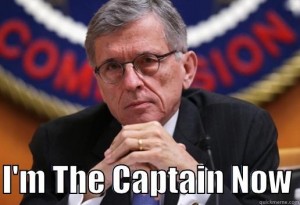
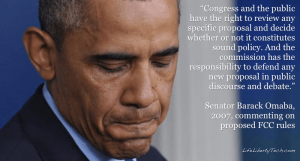
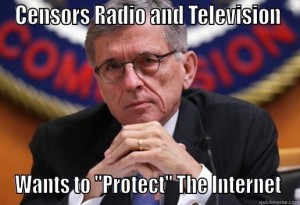
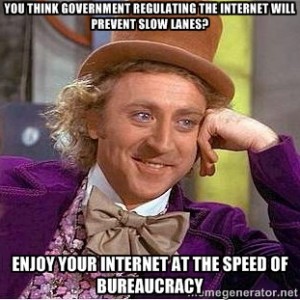
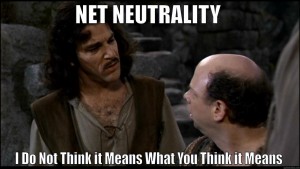
 I’d like to share some thoughts on ideas from an article I read recently (and unfortunately can’t locate at the moment).
I’d like to share some thoughts on ideas from an article I read recently (and unfortunately can’t locate at the moment).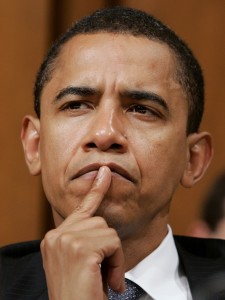 If you happen to live in the St. Louis area as I do, you no doubt are apprehensively awaiting the upcoming grand jury decision on whether Officer Darren Wilson will be charged with murdering Michael Brown. Unless you’ve been living under a rock, you know that all the local media outlets are running stories constantly reminding us that the decision is due any day now and that if a decision is made not to indict Officer Wilson, it will likely spark large scale protests and potentially more violence as was seen 3 months ago. In preparation for this event, many elected officials are calling for peace regardless of what the decision is. Even Michael Brown’s parents are asking that no violence be used to protest in their son’s name. However, conspicuously absent from these calls for peace are words from the President of the United States.
If you happen to live in the St. Louis area as I do, you no doubt are apprehensively awaiting the upcoming grand jury decision on whether Officer Darren Wilson will be charged with murdering Michael Brown. Unless you’ve been living under a rock, you know that all the local media outlets are running stories constantly reminding us that the decision is due any day now and that if a decision is made not to indict Officer Wilson, it will likely spark large scale protests and potentially more violence as was seen 3 months ago. In preparation for this event, many elected officials are calling for peace regardless of what the decision is. Even Michael Brown’s parents are asking that no violence be used to protest in their son’s name. However, conspicuously absent from these calls for peace are words from the President of the United States.